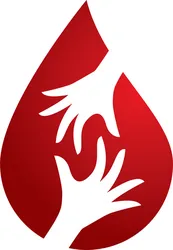Why Blood Donation Matters
Donating blood is a simple act of kindness that has a profound impact on our community's health and well-being.
The Need is Constant
Every day, patients in hospitals require blood for surgeries, cancer treatments, chronic illnesses, and traumatic injuries. Your donation ensures a stable supply.
Save Multiple Lives
A single donation can be separated into its components—red cells, plasma, and platelets—and can help save up to three lives.
A Gift to Community
It’s a selfless act that strengthens community bonds and provides a vital resource that cannot be manufactured, only given.
Meet Our Heroes
We are grateful for every donor who steps up. Here are some of the compassionate individuals from our community.

Divya
Gender: Female
AB-
Arnav
Gender: Male
A-Understanding Blood Groups
Your blood type is determined by antigens on the surface of your red blood cells. Knowing your type is crucial for safe transfusions.
- There are 4 main blood groups: A, B, AB, and O.
- Each group can be either RhD positive (+) or RhD negative (-).
- This means there are 8 common blood groups in total.
- Type O negative blood is known as the universal donor type.
A healthy diet helps ensure a successful blood donation. Check out the following recommended foods to eat prior to your donation.
.jpg)
Be a Part of Something Bigger
The most common blood type is O, followed by type A. Type AB individuals are "universal recipients" because they can receive blood of any type. No matter your type, your donation is vital.
Become a Donor NowFrequently Asked Questions
Have questions? We’ve got answers. Here are some of the most common inquiries about blood donation.
Most people can give blood if they are in good health. Generally, you need to be at least 17 years old, weigh at least 110 lbs, and be in good general health. Specific eligibility criteria may vary, so it's best to check with your local donation center.
You must wait at least 8 weeks (56 days) between donations of whole blood. This waiting period helps ensure that your body has had enough time to replenish its red blood cells.
Absolutely. Donating blood is a very safe process. All needles and blood bags are new, sterile, and disposable. They are used only once for your donation and then safely discarded, eliminating any risk of contracting a bloodborne infection.
The entire process, from registration to post-donation refreshments, takes about an hour. The actual blood donation itself only takes about 8-10 minutes. Your time can save up to three lives!
